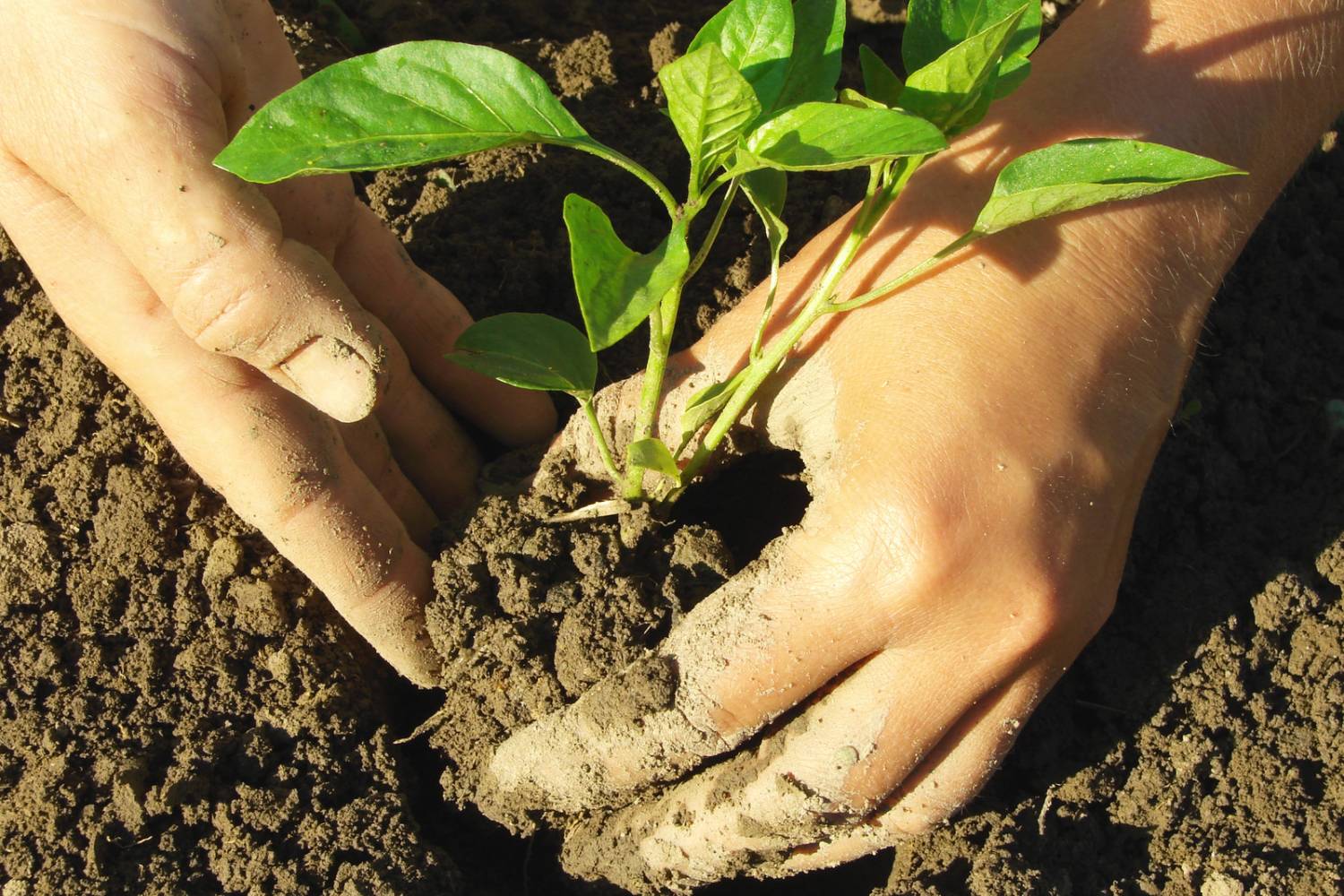Best Fertilizers for Peppers: Optimize Plant Health and Yield
Best Fertilizers for Peppers: Optimize Plant Health and Yield
Blog Article
Organic Vs. Synthetic Fertilizers: Which Is Best for Supporting Healthy And Balanced Pepper Plants?
In the realm of nurturing healthy and balanced pepper plants, the choice between synthetic and organic plant foods stands as a crucial decision with significant effects. While both alternatives purpose to offer essential nutrients to support plant growth, the subtleties of their influence on the soil, plant health, and the environment stimulate a discussion that echoes throughout the horticulture area. Understanding the distinctive benefits and prospective mistakes of each fertilizer type is crucial for pepper cultivators seeking to optimize their returns while keeping a lasting and eco-conscious method.
Benefits of Organic Plant Foods
Organic fertilizers offer an environmentally-friendly and sustainable approach to beneficial pepper plants, offering crucial nutrients without using artificial chemicals. These all-natural plant foods are stemmed from organic sources such as garden compost, manure, bone meal, and seaweed, advertising dirt health and biodiversity. Unlike synthetic fertilizers, organic options launch nutrients slowly, making certain a balanced and steady supply for pepper plants to prosper.
One significant benefit of organic fertilizers is their capability to enhance dirt framework and water retention. By enhancing soil health, organic fertilizers promote useful microbial task, which helps in nutrient uptake by pepper plants. Furthermore, natural fertilizers minimize the risk of chemical run-off, securing water sources from contamination and protecting the environment.
Furthermore, organic fertilizers add to long-lasting dirt fertility by promoting the development of advantageous soil microorganisms. These organisms aid damage down natural matter, releasing nutrients in a form that is easily available to pepper plants. best fertilizers for peppers. By cultivating a healthy soil ecosystem, organic fertilizers sustain sustainable pepper cultivation practices that profit both plants and the environment
Disadvantages of Artificial Plant Foods
Artificial plant foods, in comparison to their organic equivalents, present numerous negative aspects when made use of to nurture pepper plants, affecting both plant health and wellness and ecological sustainability. One significant drawback of artificial fertilizers is their tendency to seep nutrients from the dirt swiftly. This fast leaching can bring about nutrition imbalances in the soil, creating plants to struggle with poisonings or shortages. In addition, artificial plant foods can damage valuable soil microorganisms, such as earthworms and helpful germs, interrupting the soil environment's equilibrium.
Moreover, the overuse of synthetic plant foods can add to water pollution. Excess fertilizers not absorbed by plants can wash away right into water bodies, bring about eutrophication, where algae blossoms deplete oxygen degrees in the water, damaging marine life. Furthermore, artificial fertilizers are commonly acquired from non-renewable resources, such as fossil gas, adding to carbon emissions and environmental destruction during their production.
Nutrient Absorption Contrast
When contrasting artificial and natural article fertilizers in terms of nutrient absorption, organic fertilizers have the benefit of giving a much more well balanced and slow-release source of nutrients. Organic plant foods have a variety of macro and micronutrients that are not only useful for the plants however also promote healthy and balanced soil microbial activity, which assists in nutrient uptake.
Moreover, organic plant foods improve soil framework and water retention capacity, enabling pepper plants to accessibility nutrients extra effectively. This improved soil quality helps with origin development, making it possible for far better nutrient absorption. Artificial fertilizers, although at first increasing plant growth as a result of their high nutrient focus, might prevent long-lasting nutrient absorption by degrading dirt health and wellness gradually.
Environmental Influence Considerations

On the various other hand, artificial fertilizers, although usually even more promptly available and concentrated to plants, can have destructive effects on the environment otherwise used appropriately (best fertilizers for peppers). Their manufacturing needs high energy inputs, leading to greenhouse gas exhausts and adding to climate adjustment. In addition, the overflow of excess artificial fertilizers can infect water sources, causing eutrophication and harming marine environments.
Ideal Fertilizer Practices for Peppers
When fertilizing pepper plants, optimizing nutrient uptake and decreasing ecological influence are essential factors to consider. To attain this, it is necessary to follow best plant food practices tailored reference to the particular requirements of pepper plants. One vital practice is to do a soil test prior to using any plant foods. This test can establish the pH degree of the soil and determine any kind of nutrient shortages, leading you in selecting the most suitable plant food solution.
An additional essential practice is to fertilize pepper plants at the correct time. Typically, peppers take advantage of receiving fertilizer at planting and after that once again when they start to blossom. Over-fertilizing can bring about nutrient discrepancies and harm the plants, so it is important to adhere to advised application rates.
Furthermore, selecting a balanced plant food with an NPK proportion that fits pepper plants' requirements is fundamental. Eventually, integrating natural and synthetic fertilizers deliberately can help nurture healthy and balanced pepper plants while lessening ecological effect.
Final Thought

Organic plant foods supply an environmentally-friendly and lasting technique to nourishing pepper plants, providing important nutrients without the usage of artificial chemicals. Unlike artificial fertilizers, organic options launch nutrients gradually, guaranteeing a steady and well balanced supply for pepper plants to thrive.
Artificial plant foods, in contrast to their natural equivalents, present numerous disadvantages go now when used to nourish pepper plants, impacting both plant health and ecological sustainability. When contrasting organic and synthetic fertilizers in terms of nutrient absorption, organic plant foods have the advantage of supplying a much more balanced and slow-release source of nutrients.In addition, natural fertilizers enhance dirt structure and water retention ability, allowing pepper plants to gain access to nutrients extra successfully.
Report this page